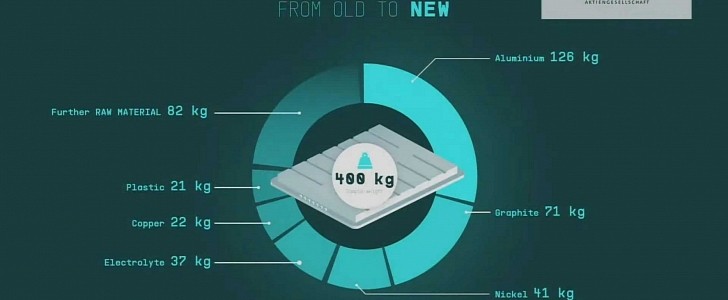Twitter may be a harsh environment for civil virtual conversations but can also present very original perspectives for things that most people take for granted. Take battery recycling, for example. Companies are investing in recycling processes, opening plants to make old cells a source of raw materials, and so forth. According to Hans Eric Melin, they have done that already in China, and recycling companies are complaining that they have very little to recycle.
Melin is the founder and managing director of Circular Energy Storage, a consulting company “focused on lithium-ion battery life cycle management.” In a tweet, he wrote that these Chinese recycling companies are saying that even the cleverest housewife cannot cook without rice. Applying that to their case, even the savviest recycling company cannot recycle without used batteries.
These companies would be concerned that old battery packs are getting sold for stationary energy storage and lasting much longer than the four or five years they were predicted to endure. With that, they are using less than 20% of their recycling capacity.
According to Melin, that is an essential lesson for other companies and automakers to learn. Renault and Volkswagen already announced efforts to have recycling facilities. JB Straubel, Tesla’s former CTO (Chief Technical Officer), founded Redwood Materials to pursue the same goals.
Battery packs will probably last up to 20 years. Some manufacturers claim their battery packs will resist more than 1 million kilometers. As the most expensive component in an electric car, these OEMs probably need them to stand that much or even more not to represent a massive liability.
The message is not to avoid opening cell recycling plants but rather to calculate their need wisely. There’s the risk that many of these companies will have nothing to recycle until electric cars overtake ICE vehicles in sales volumes and still wait quite a while until these battery packs are no longer suitable either for automotive use or stationary storage.
These companies would be concerned that old battery packs are getting sold for stationary energy storage and lasting much longer than the four or five years they were predicted to endure. With that, they are using less than 20% of their recycling capacity.
According to Melin, that is an essential lesson for other companies and automakers to learn. Renault and Volkswagen already announced efforts to have recycling facilities. JB Straubel, Tesla’s former CTO (Chief Technical Officer), founded Redwood Materials to pursue the same goals.
"Without rice, even the cleverest housewife cannot cook"
— Hans Eric Melin (@hanseric) July 2, 2021
Chinese battery recyclers are frustrated by utilization rates of less than 20% as EV batteries are used significantly longer than predicted 4-5 years, are sold for reuse to smaller companies and are exported. pic.twitter.com/N1LbrjMdu6
Battery packs will probably last up to 20 years. Some manufacturers claim their battery packs will resist more than 1 million kilometers. As the most expensive component in an electric car, these OEMs probably need them to stand that much or even more not to represent a massive liability.
The message is not to avoid opening cell recycling plants but rather to calculate their need wisely. There’s the risk that many of these companies will have nothing to recycle until electric cars overtake ICE vehicles in sales volumes and still wait quite a while until these battery packs are no longer suitable either for automotive use or stationary storage.















